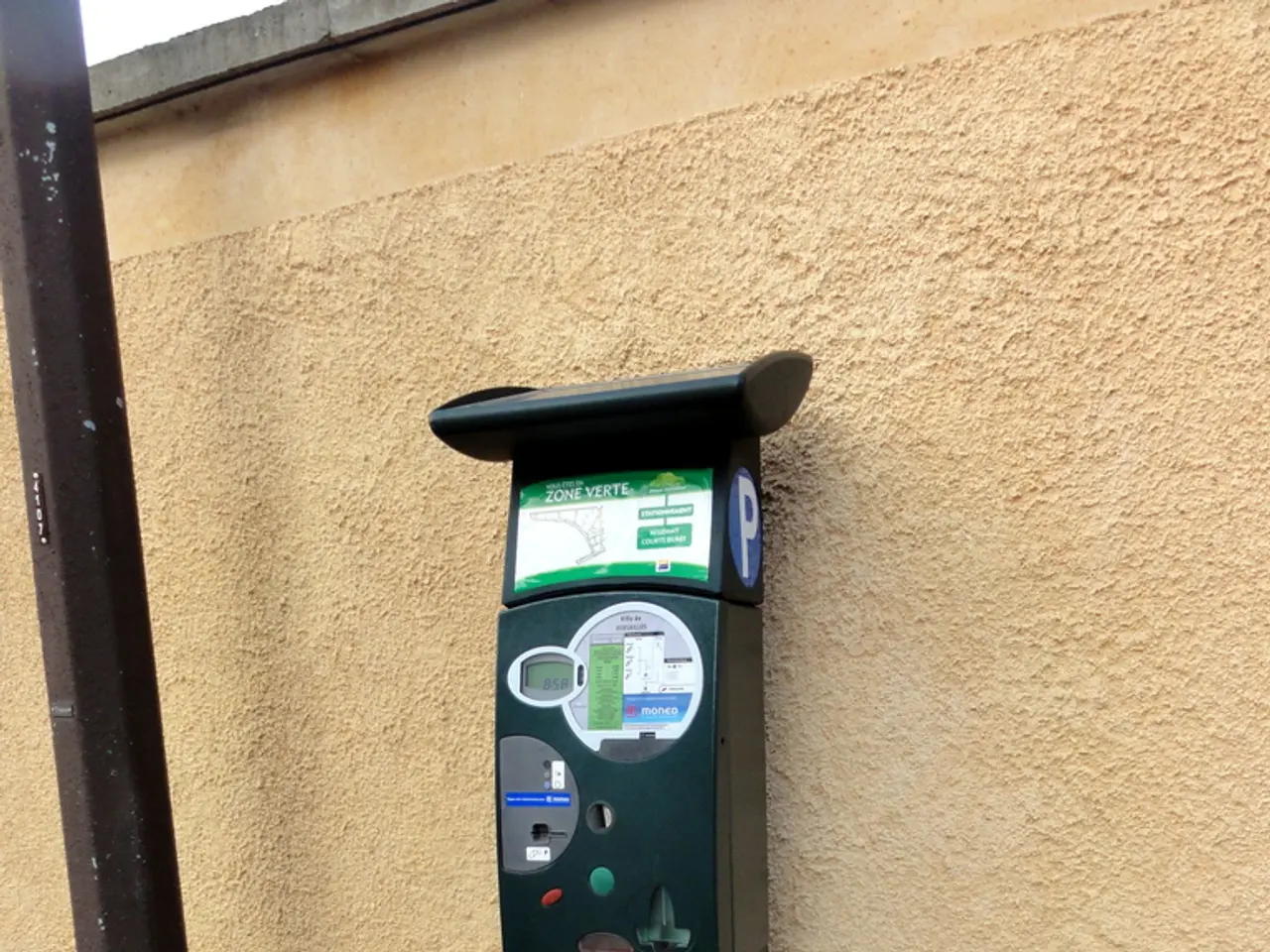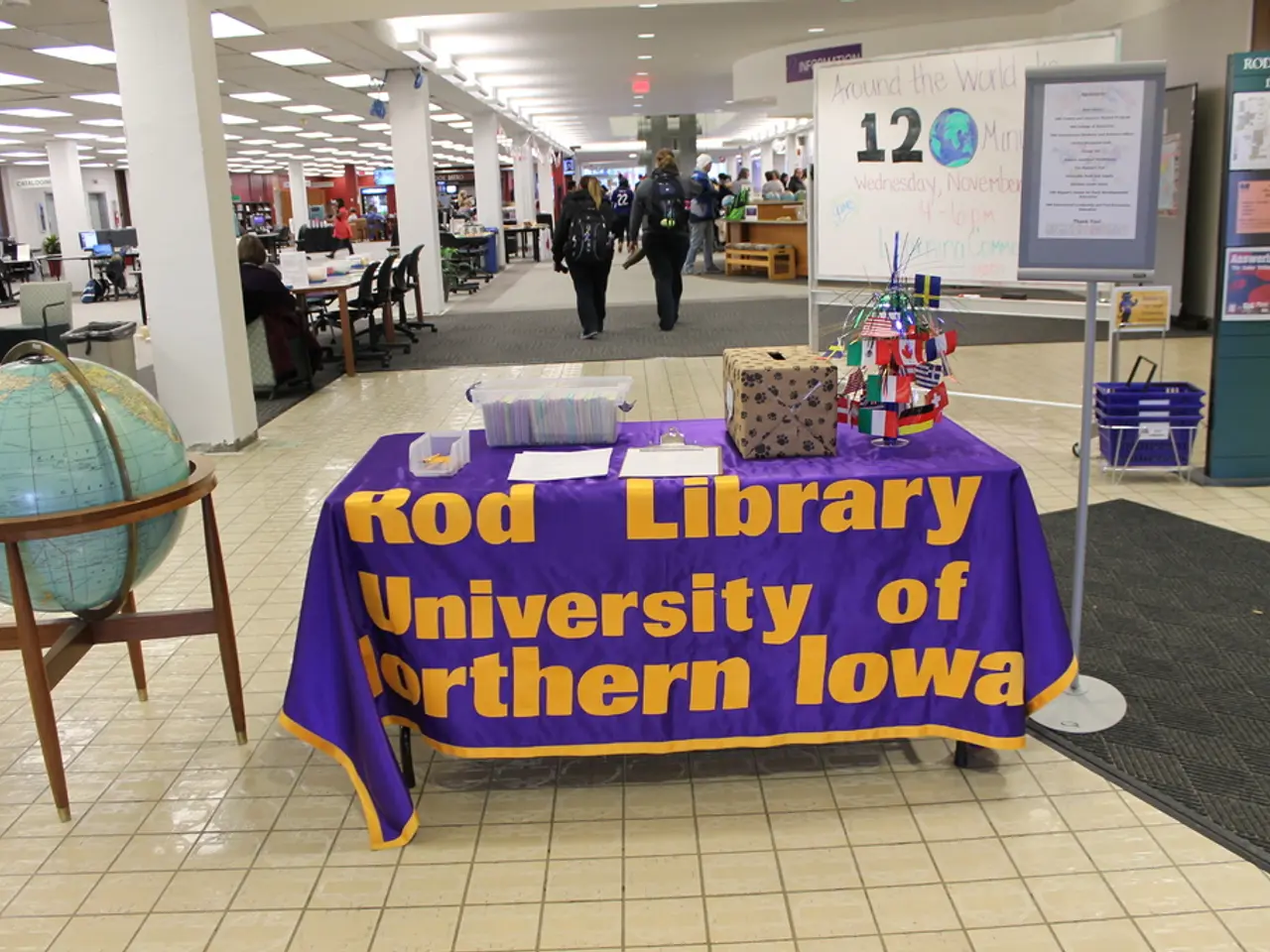Tourists in South Korea can now retrieve USDT cryptocurrency from Kaia ATMs for cash transactions.
South Korea Introduces Stablecoin ATMs for Foreign Tourists
South Korea has taken a significant step in the cryptocurrency space by launching stablecoin Automated Teller Machines (ATMs) for foreign tourists. These ATMs, a joint venture between blockchain firm DaWinKS and the Kaia DLT Foundation, are currently operational at seven key locations such as NSeoul Tower and Lotte Mart [1][2][3].
The ATMs support Kaia-issued USDT, a version of Tether's stablecoin on the Klaytn and Finschia public blockchain. Tourists can convert these stablecoins into cash in 85 different fiat currencies or load funds onto local transit cards [1]. However, the service is currently limited to foreign visitors, with locals being excluded as part of the regulatory sandbox's controlled experiment to ensure compliance [1][2][3].
The regulatory sandbox permits foreign passport holders to use the stablecoin ATMs at major tourist sites by implementing biometric and passport-based Know-Your-Customer (KYC) verification, ensuring that access is restricted solely to non-residents [1][2].
As for the future legislative outlook, South Korea is actively debating stablecoin regulation. Competing bills from the ruling and opposition parties propose different frameworks focusing on reserve requirements, licensing, and enforcement mechanisms. Both bills seek to empower financial regulators with emergency oversight and mandate Korean won backing to ensure full reserves for stablecoins [1][5].
Dr. Sangmin Seo, chairman of the Kaia DLT Foundation, stated there is a "real desire to pursue" South Korea's stablecoin industry [6]. The structure of stablecoin reserves is another unresolved issue in South Korea's stablecoin regulatory landscape. Much will depend on how lawmakers resolve questions left open over stablecoin oversight, including who can issue tokens, how reserves are structured, and the role private firms may play in the national payments system [1][5][6].
The stablecoin ATMs can be compatible with various fintech solutions, serving as a gateway from digital assets to real-world, cash-down activities. Despite locals being barred from transacting, they have reportedly attempted to access the machines discreetly [2]. The ATMs are visible, easy to use, and integrated with infrastructure like convenience stores and transit hubs [7].
President Lee Jae-myung is advancing a crypto-friendly agenda that includes new legislation to regulate and expand stablecoin issuance [4]. The proposed Digital Asset Basic Act does not specify who can issue stablecoins, leaving this question open for future resolution [5]. If passed, the Act would allow companies with at least 500 million won in equity to issue stablecoins, including a proposed won-pegged version aimed at curbing capital flight [5].
In conclusion, the stablecoin ATMs in South Korea serve as a bridge for real-world crypto-to-cash use cases, while broader stablecoin legislation is still evolving with regulatory nuances under active parliamentary discussion [1][2][5].
Sources: [1] https://www.coindesk.com/business/2022/07/21/south-korea-opens-stablecoin-atm-for-foreign-tourists-at-nseoul-tower/ [2] https://www.finextra.com/newsarticle/38336/south-korea-launches-stablecoin-atms-for-tourists [3] https://www.cryptoglobe.com/latest/2022/07/south-korea-launches-stablecoin-atms-for-foreign-tourists-at-n-seoul-tower/ [4] https://www.coindesk.com/policy/2022/03/31/south-korea-president-moves-to-expand-crypto-friendly-agenda-with-new-bills/ [5] https://www.coindesk.com/policy/2022/05/17/south-korea-parliament-mulls-digital-asset-basic-act-for-crypto-regulation/ [6] https://www.coindesk.com/business/2021/10/07/south-korean-blockchain-firm-dawinks-raises-100m-to-develop-stablecoin-atms/ [7] https://www.coindesk.com/business/2022/07/25/south-korea-stablecoin-atms-target-foreign-tourists-but-locals-are-trying-to-get-in/
- South Korea's blockchain firm DaWinKS, in collaboration with the Kaia DLT Foundation, has introduced stablecoin ATMs for foreign tourists at key locations such as NSeoul Tower and Lotte Mart.
- These ATMs, supporting Kaia-issued USDT, allow tourists to convert stablecoins into cash in 85 different fiat currencies or load funds onto local transit cards.
- Current regulations limit the use of these ATMs to foreign visitors, while locals are excluded as part of a controlled experiment to ensure compliance.
- South Korea is actively debating stablecoin regulation, with competing bills proposing different frameworks focusing on reserve requirements, licensing, and enforcement mechanisms.
- If passed, the proposed Digital Asset Basic Act would allow companies with at least 500 million won in equity to issue stablecoins, including a won-pegged version aimed at curbing capital flight.




